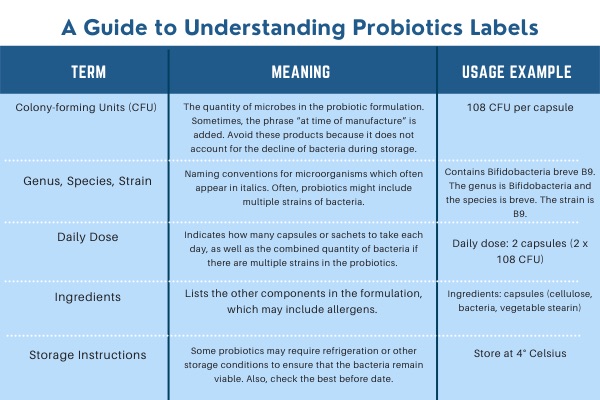Looking at existing studies, scientists say evidence doesn’t support using probiotics to boost brain health — no matter what their labels claim.
There are trillions of bacteria and other microbes residing in our gut. And they’re not just freeloading; they help train the immune system and also produce dozens of other signaling molecules that interact with nerve cells in the gut, the brain and elsewhere. In a way, these resident bacteria are like microbial puppet-masters. The thing is, we don’t fully understand how they pull our strings. So, scientists are further exploring their impacts on the immune system — and on the brain. Some research points to the possibility that tweaking the gut ecosystem could treat cognitive impairment and Alzheimer’s. Some microbes have been linked to Alzheimer’s and cognitive impairment. In one study, gut bacteria in young mice may help improve cognitive impairment in old mice. In others, the brain’s resident immune cells, microglia, which are important for protecting against disease, appeared to actually hasten the symptoms of Alzheimer’s under certain conditions. Scientists wonder if changing some of these microbes in the gut could improve the function of the brain.
Some of the ensuing research looks at live microbes found in products like yogurts and kefirs that, when ingested, confer a health benefit at a specific dose. You might recognize them from the pharmacy’s supplements aisle: probiotics. In some cases, they have been associated to improved memory, or improved mental flexibility. Accordingly, some probiotic products in the pharmacy or supplement aisle make even grander claims, promising to, for example, “support cognitive health, memory and brain function.” The verdict is still out on the efficacy of packaged commercial formulations.
With these encouraging potential benefits, it’s no wonder that an estimated four million Americans regularly use probiotics to, hopefully, boost not only their gut health, but maybe their brain health, too. Yet, when comparing these potential benefits to what scientists know based on high-quality, peer-reviewed scientific studies, Christopher Chi Hang Mak, a researcher at the University of Cambridge who led a recent study reviewing probiotics for Alzheimer’s and mild cognitive impairment, said there’s one very important thing missing from the equation: real proof.
“The current data suggests that probiotics do not yet have a significant enough effect [in studies] for it to be warranted as a primary mode of treatment,” Mak told Being Patient.
While there are hundreds of examples of basic research supporting the benefits of these microbes in probiotics in brain health — from cognitive decline to Alzheimer’s — Mak added the vast majority are either non-controlled, or are biased by funding from large supplement-makers or stakeholders such as Nestlé or Yakult. When it comes to trustworthy studies — formal, non-commercial human trials that are randomized and controlled, there are so few, you can count them on one hand.
Mak and his colleagues searched through hundreds of trials to find all of the randomized-controlled trials that used standardized measures of cognition. In the end, they found just five clinical trials of probiotics in people with cognitive impairment or Alzheimer’s.
Do probiotics work for brain health?
High-quality human trials, like the five Mak’s team identified, are the only way to know for certain not only that a product does what it says, but that it does so safely. Because this research area is still so underdeveloped, the landscape is strewn with contradictions and mixed results.
Three of these trials looked at Alzheimer’s. All of those reported that probiotics had a positive impact on cognition. However, upon further analysis of the findings, the size of the samples, and differences in study protocols, Mak’s team found that the overall evidence was not statistically significant. The other two clinical trials, which focused on individuals with cognitive impairment did not report significant changes as a result of probiotics. Mak and colleagues agreed in their review that the overall effects across these studies were not significant.
Is it safe to take probiotics for brain health?
Altogether, the five trials asking this question are not nearly enough to reach a strong conclusion, he said. However, preliminary research and one-off studies often get used to support unproven products and claims. Sometimes, this tactic results in false advertising lawsuits. Often enough, however — because probiotics are supplements, and therefore not subject to strict regulations — these claims go relatively unvetted. There are few checks in place to determine whether legitimate, peer-reviewed scientific findings support the claims on the label, much less that the microbial strain said to be in the bottle is actually alive and thriving as it would need to be to have any impact on the human body.
If the science does pass muster, and the contents are alive and thriving in the bottle, there is another barrier to guaranteed efficacy: There is no required vetting process to determine the ideal dosage of a probiotic in a product.
Beyond efficacy questions and dosage questions, these products might even come with health risks.

Mak noted that, just as supplement makers are not rigorous in their efficacy testing, few are comprehensive in their testing for — or disclosures of — adverse side effects. In a 2018 study, researchers looked across 384 randomized clinical trials and found that well over a third (37 percent) did not report any safety results, while more than a quarter (28 percent) didn’t report on a standard clinical trial checklist of harms.
And while these products’ marketing websites may share no shortage of misleading or incomplete information, few mention the possibility of these negative outcomes — from diarrhea and constipation to infections and the growth of harmful bacteria in the intestines. (Ironically, some of these negative effects could be brain health-related.)
When it comes to probiotics for brain health, overall, experts agree on one thing: there is a lack of conclusive evidence supporting the use of probiotics for cognitive impairment or Alzheimer’s. As one leader in microbiome research, Eran Elinav at the Weizmann Institute of Science, told STAT News, “I strongly, strongly question why the general public takes probiotics when medical evidence to this routine is not really available.”



